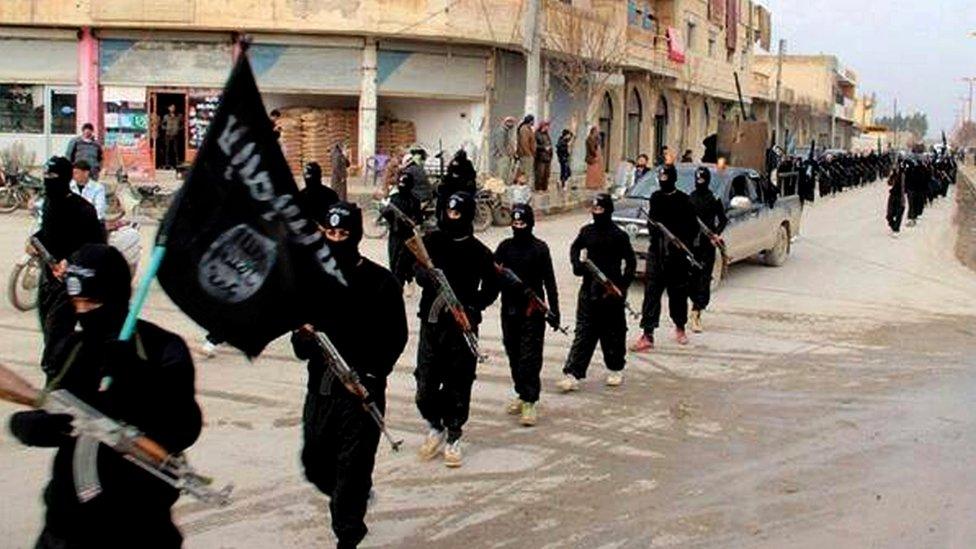David Cameron says bombing IS in Syria will make UK 'safer'
- Published
- comments
David Cameron on IS: "They have already tried to attack us"
David Cameron says launching UK air strikes against Islamic State militants in Syria will "make us safer".
The prime minister denied claims it would make the UK a bigger target for terror attacks, as he made the case for military action, in the Commons.
He told MPs the UK was already a target for IS and could not "outsource our security to allies".
Labour is split, with some shadow ministers backing bombing but leader Jeremy Corbyn opposing action.
David Cameron says he will hold a Commons vote on Syria air strikes if he thinks he can win it, possibly as early as next week.
He told MPs there was strong legal justification for extending the current military action in Iraq, on grounds of self-defence and the recent UN Security Council resolution.
He needs to persuade the backbench Conservative MPs who thwarted his first attempt launch air strikes in Syria in 2013, under very different circumstances, to change their minds and get enough Labour MPs on board to offset any rebellion on his own side.
Labour has yet to agree an official position, with leader Jeremy Corbyn against air strikes, but half of his frontbench speaking in favour of them at a shadow cabinet meeting, according to sources.
Jeremy Corbyn: "Does it strengthen or undermine our security?"
In the Commons debate, Mr Corbyn sought assurances the UK would not be dragged into a ground war and asked the PM whether UK air strikes would make any military difference.
He said there was "no doubt" the "so-called Islamic State group has imposed a reign of terror on millions in Iraq, Syria and Libya" and that it "poses a threat to our own people".
But he added: "The question must now be whether extending the UK bombing from Iraq to Syria is likely to reduce, or increase, that threat and whether it will counter, or spread, the terror campaign Isis is waging in the Middle East."
Mr Corbyn stated his opposition to air strikes at shadow cabinet meeting following the Commons debate but he is under pressure to offer his MPs a free vote, although he is hoping his shadow cabinet can come to a "collective view" on the issue, when they meet again on Monday.
After the shadow cabinet meeting Shadow Foreign Secretary Hillary Benn told BBC News the arguments put in favour of action by the PM were "compelling".
Hilary Benn tells Laura Kuenssberg 'compelling case' for Syria action
But just over an hour later Mr Corbyn wrote a letter to all Labour MPs saying he cannot support the prime minister's proposals and was not convinced by his arguments.
Mr Cameron answered questions from 103 MPs during a marathon two hours and forty minutes debate as he sought to persuade them to back air strikes.
He told MPs "we face a fundamental threat to our security" and could not wait for a political solution, and that doing nothing "could make the UK more of a target for Isil attacks".
"That bomb in Paris, that could have been London. If they had their way, it would be London," said Mr Cameron.
"I can't stand here and say we are safe from all these threats. We are not. I can't stand here either and say we will remove the threat through the action that we take.
"But do I stand here with advice behind me that taking action will reduce and degrade that threat over time? Absolutely and I have examined my conscience and that's what it is telling me."
He added that taking action as part of a coalition would "help make us safer".
The prime minister sets out his case in detail in a 32 page response, external to a recent Foreign Affairs Committee report on the tests for military intervention.
The committee's Conservative chairman, Crispin Blunt, who had previously opposed military action, said he had now changed his mind, saying the "UK should play a full role in the coalition, to best support and shape the politics, thus enabling the earliest military and eventual ideological defeat of Isil".

Analysis
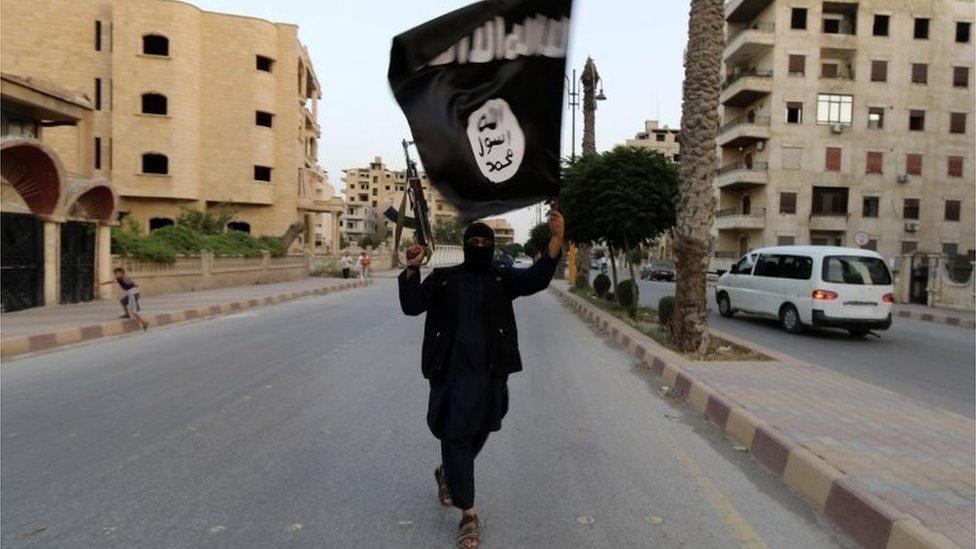
IS militants control large parts of Syria and Iraq
By BBC Security Correspondent Frank Gardner
If the prime minister gets his way and Parliament does give the go-ahead for Britain to join in air strikes against IS in Syria then there are a number of facts people should know.
This will not lead to the immediate or even imminent demise of so-called Islamic State.
It will simply add to the incremental damage being done over time to this proscribed terrorist group by other air forces already bombing in Syria.
IS's centre of gravity is around Raqqa, in Syria. Britain is already at war with IS next door in Iraq, where the RAF has been hitting their positions for more than a year.
So Britain is already a target for IS-inspired terrorist attacks, including some of the seven thwarted in the UK in the last year.
But IS will be acutely aware of this very public debate and will very likely look to "punish" Britain in the way it has already targeted France.
So in the short to medium term this would increase - but not initiate - the terrorist threat to UK.

Mr Cameron ruled out British "boots on the ground" - and insisted the RAF had specialist bombing capabilities that were needed by its allies.
He also addressed concerns about the downing of a Russian jet, insisting procedures were in place to reduce the risk of a similar incident.
'Publicity coup'
He stressed that IS could not be defeated by air strikes alone, but they were a key part of a wider "comprehensive" strategy to deal with the threat, including the removal of President Assad and supporting the Free Syrian Army.
The prime minister said there would not be a vote in the Commons unless there was a majority for action "because we will not hand a publicity coup to Isil".
Some Labour frontbenchers want to see the text of any motion before deciding, the BBC understands, while others want more details about the 70,000 Syrian opposition fighters, who are not part of extremist groups, that Mr Cameron referred to.
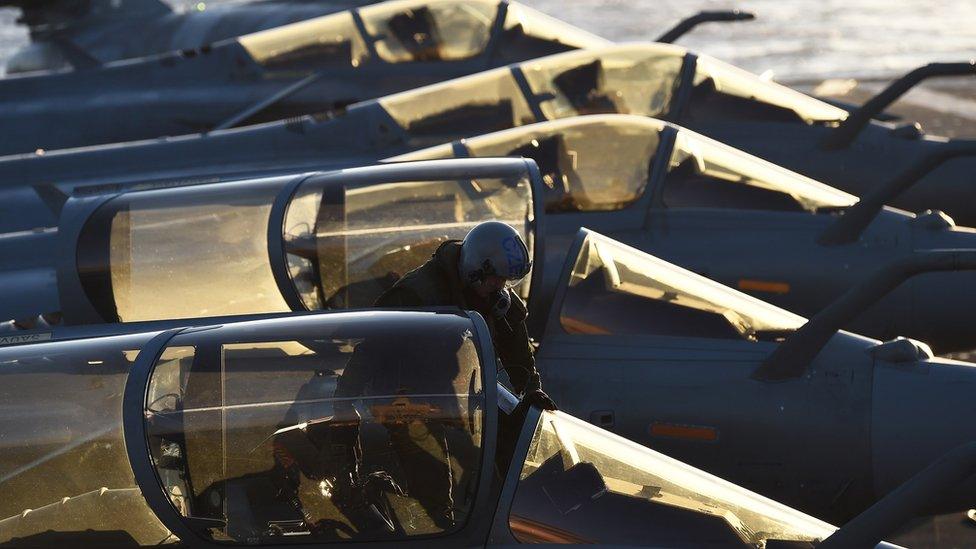
France has stepped up air strikes since the Paris attacks
The SNP, which has 54 Westminster MPs, has said it will not back military intervention without a specific authorisation from the United Nations. The party's leader at Westminster Angus Robertson said he was not satisfied with the PM's response to the foreign affairs committee report.
The party's foreign affairs spokesman and former leader Alex Salmond, who missed the debate, has been criticised for attending the unveiling of a new portrait of him in Edinburgh.
The Democratic Unionist Party, which has eight MPs, has suggested it could be open to backing air strikes - in 2013 five of its MPs voted against the government.
DUP leader Nigel Dodds launched a strongly-worded attack on Jeremy Corbyn, saying his "petulant" opposition to action was the response of the "irresponsible revolutionary bedsit".
Lib Dem leader Tim Farron said he was still considering the case for air strikes.
- Published26 November 2015
- Published23 November 2015
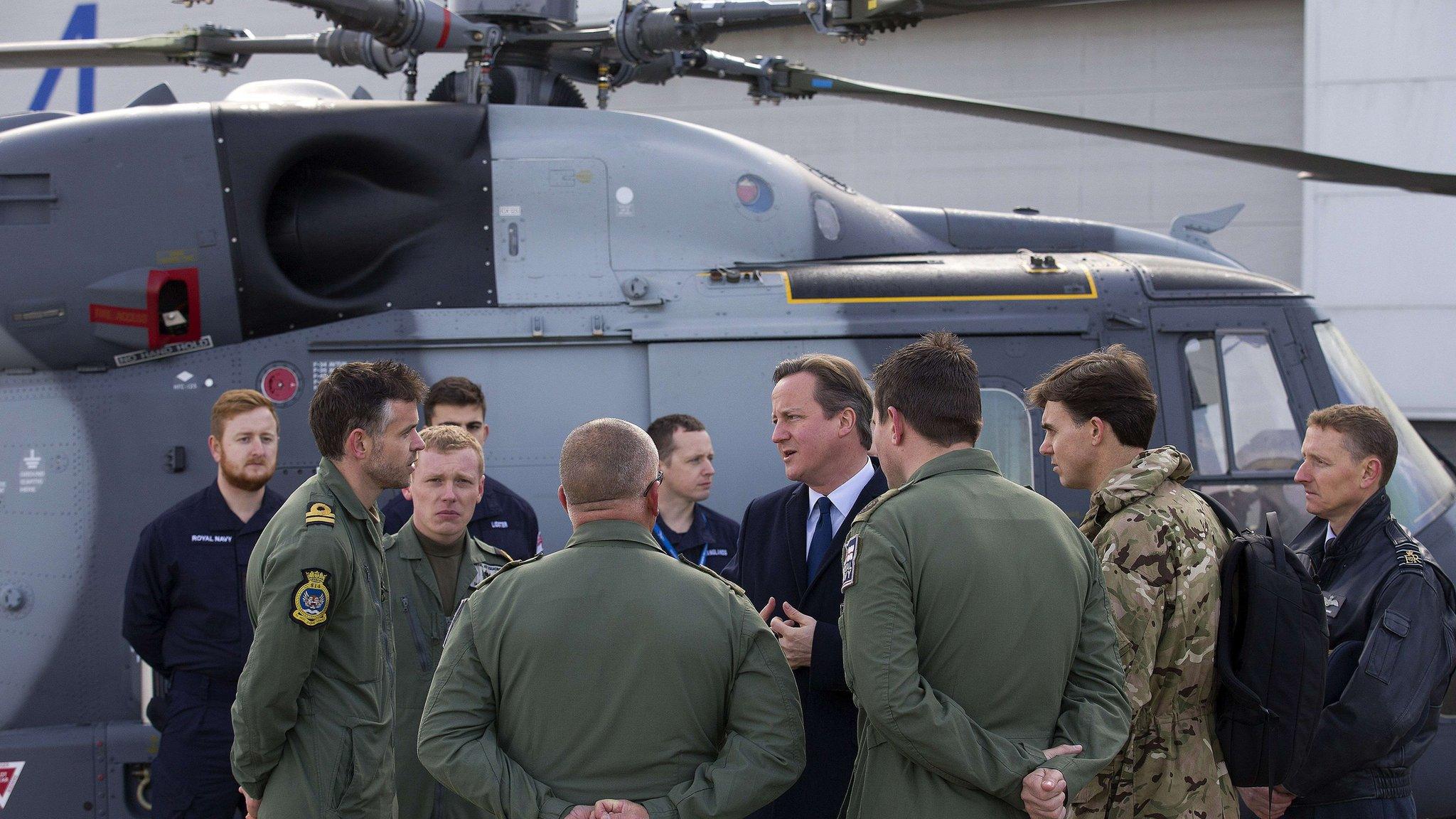
- Published22 November 2015
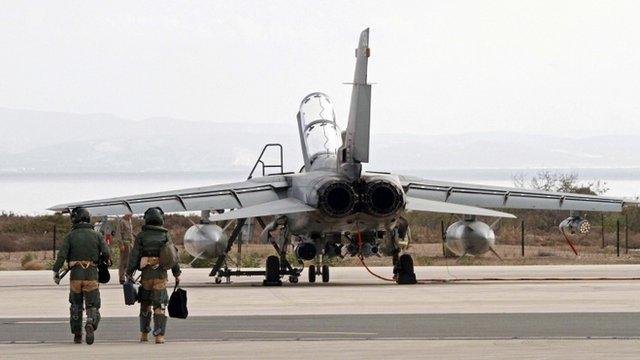
- Published21 November 2015
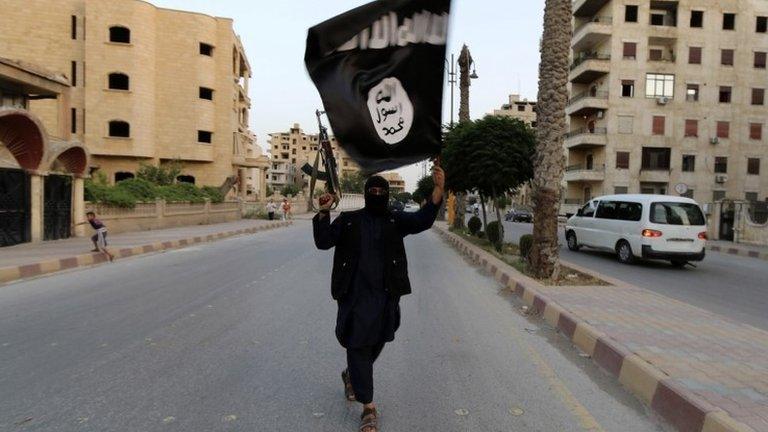
- Published3 November 2015
